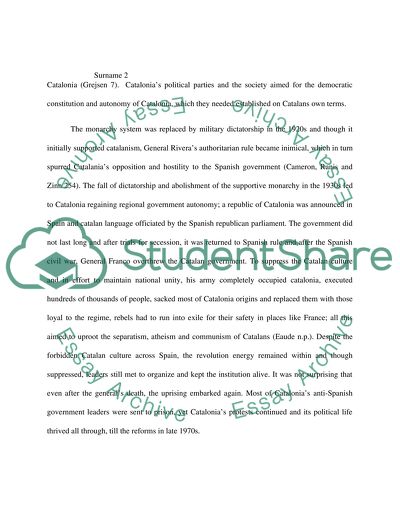Cite this document
(“Will Catalan split from Spain Research Paper Example | Topics and Well Written Essays - 1750 words”, n.d.)
Retrieved from https://studentshare.org/social-science/1639079-will-catalan-split-from-spain
Retrieved from https://studentshare.org/social-science/1639079-will-catalan-split-from-spain
(Will Catalan Split from Spain Research Paper Example | Topics and Well Written Essays - 1750 Words)
https://studentshare.org/social-science/1639079-will-catalan-split-from-spain.
https://studentshare.org/social-science/1639079-will-catalan-split-from-spain.
“Will Catalan Split from Spain Research Paper Example | Topics and Well Written Essays - 1750 Words”, n.d. https://studentshare.org/social-science/1639079-will-catalan-split-from-spain.


